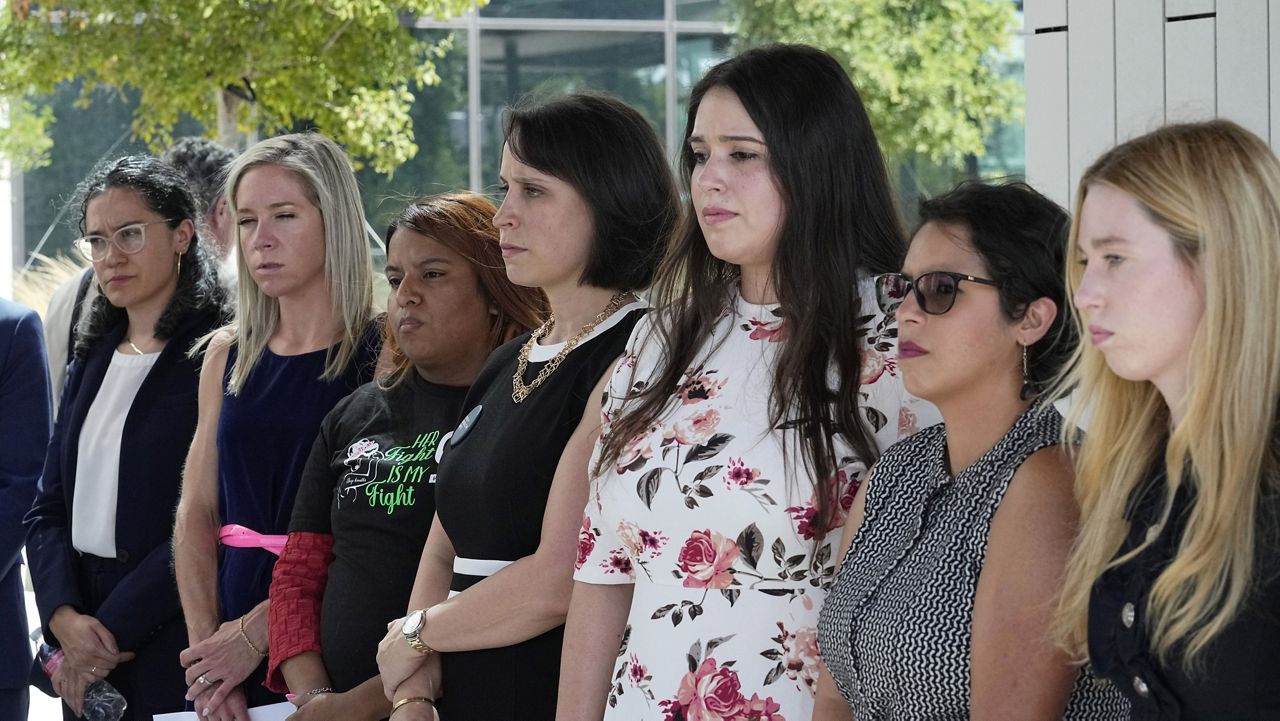AUSTIN, Texas — It has been two years since Texas made it illegal to ship abortion pills by mail, but pregnant Texans are still finding ways to obtain the medication, with the help of reproductive rights groups in other states. This comes as a lawsuit challenging the Food and Drug Administration’s approval of the pill is likely headed to the U.S. Supreme Court.
One online ad that can be seen on Facebook features a woman who says, “Everyone's talking about crossing state lines to get an abortion now, but you ain't even got to all it. People are getting the pills by mail, in every state, even yours.”
The group, Plan C, is behind this and other digital and radio ads. It hopes to let pregnant people know there are resources available to access abortion drugs by mail even if they live in a state like Texas, where the law imposes extreme restrictions on such medications. Plan C is one of several organizations working to raise awareness. Its website includes a state-by-state guide with a list of options.
“These laws are not based in the reality, the reality is that people still need access to this essential health care service,” said Angie Jean-Marie, an adviser to Plan C.
“The laws are creating a confusing landscape for people who need access to health care. That said, the kind of information that we want to get out there is that there are so many safe and effective ways for people to receive abortion care if and when they need it,” Jean-Marie continued.
Dr. Linda Prine is with Aid Access, one of the groups that has been mailing abortion pills. Aid Access works with doctors in states where abortion is legal to prescribe pills via telemedicine and mail them to patients in states where abortion is severely restricted or outlawed.
Prine lives in New York, where a so-called shield law promises legal protections to doctors providing the pills to those in anti-abortion jurisdictions.
“It's as though they are virtually traveling to me in New York, and they are my New York patient during the time that I communicate with them, and then when I mailed them the pills,” Prine told Spectrum News.
“My medical care is covered by my New York state license, and the Texas regulations do not affect me, because I'm not practicing in Texas, and I don't have a Texas license,” she continued.
According to a University of Texas at Austin study, requests to Aid Access for abortion pills jumped nearly 160% after the Supreme Court overturned the constitutional right to an abortion.
Prine said generally she has been seeing about 10 Texans virtually a day since New York passed its shield law in June, despite a two-year-old Texas law that makes it illegal to mail abortion pills to anyone in the state.
The protections in New York and other states that allow abortions remain untested, but Prine said she has confidence in her attorneys and is willing to take the risk.
“Having spent a couple of years talking to people from Texas, on our miscarriage and abortion hotline, I hear the stories, sometimes quite heartbreaking stories of how badly people need to get this abortion, you know, they have a lot of things going on in their lives, trying to take care of kids that they already have trying to make ends meet, put food on the table, give their families what they need, and they can't afford another child,” Prine said. “You just can't help but respond in a situation like that.”
All of this is playing out as a challenge to the FDA’s approval of the most commonly used abortion drug rages on. An appeals court this week said mifepristone should not be sent through the mail or prescribed through telemedicine. But the ruling is on hold as the litigation plays out.







